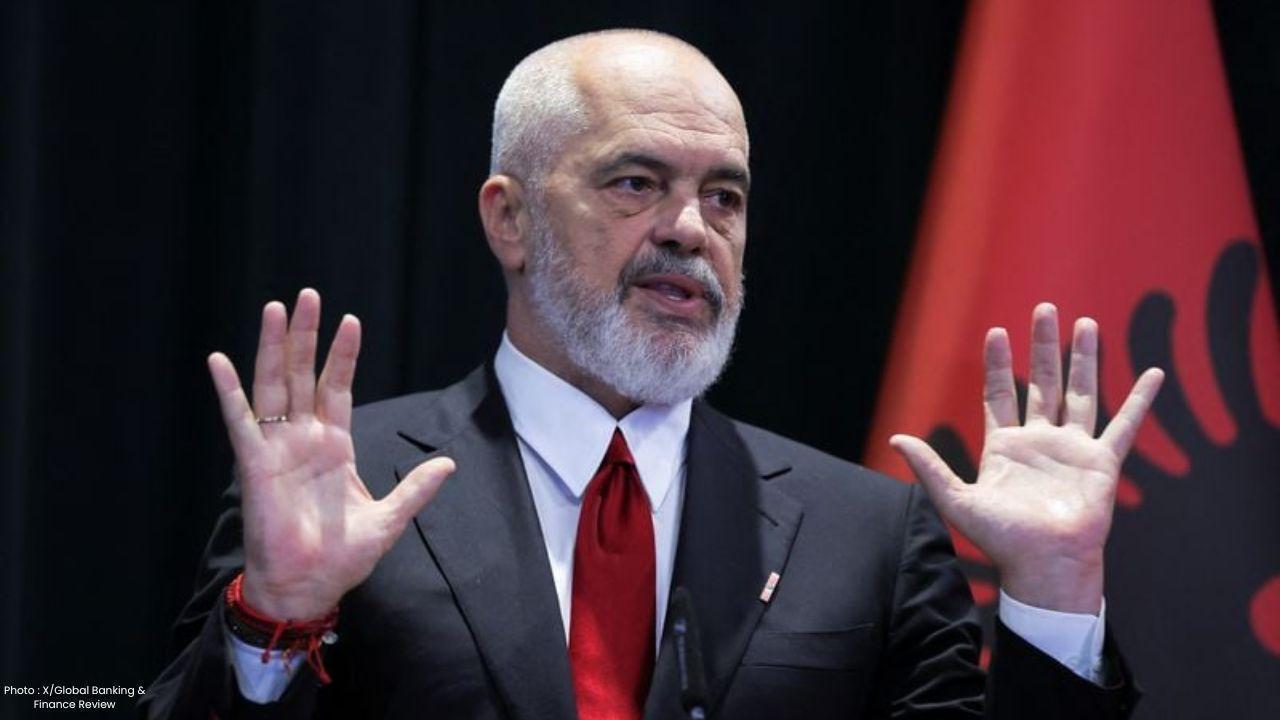
Post by : Abhinav Rana
Albania’s Socialist leader Edi Rama has officially begun his fourth consecutive term as Prime Minister after winning a majority in May’s elections. Backed by 82 votes in the 140-seat parliament, Rama now sets his sights on a bold promise: securing full European Union membership by 2030. This work will dominate his new mandate, guiding reforms in governance, justice, and public integrity as Albania seeks to align itself with EU standards and institutions.
In the May 2025 elections, Rama’s Socialist Party secured 83 seats, giving it a comfortable majority in the Albanian Parliament. That majority cleared the way for a smooth confirmation process in September when Rama stood as the sole candidate for prime minister, receiving 82 votes from the legislature. His party’s dominance ensures strong legislative support, but those seats now need to translate into effective action not just political rhetoric to meet the EU’s rigorous entry criteria.
“European Albania is the guiding compass for every aspect of our program,” Rama declared during his confirmation. More than a slogan, membership in the European Union by the end of this decade is his flagship promise. Under this timeline, Albania must accelerate reforms in multiple domains- rule of law, anti-corruption, judiciary independence, media freedom to satisfy EU benchmarks. Analysts, while recognizing the progress made, caution that Albania’s reputation for corruption and links with organised crime remain significant obstacles to meeting Brussels’ standards.
Corruption scandals have long haunted Albania’s public image. From high-profile procurement irregularities to accusations of money laundering and organised crime operating in tandem with political elites, the landscape is far from clean. Transparency watchdogs say that these issues are not peripheral, they form central barriers to Albania’s EU aspirations. Rama must show not just legislative action but credible enforcement and visible accountability. Without those, the EU’s doubts over whether Albania can fulfill its promises will persist.
In one striking move, Rama’s new government has appointed Diella, an AI-generated virtual assistant, to oversee public tenders in a drive to reduce human interference and corruption. While some hail the idea as innovative offering automated oversight and transparency others view it with skepticism. The bot is not a citizen, not human, raising legal and constitutional questions, especially from opposition leaders who say such innovations require clear human accountability. Still, Diella reflects Rama’s broader strategy: using technology not just for governance, but as a public signal of reform.
Opposition leader Sali Berisha has condemned the process, arguing the new government lacks sufficient debate and accuses the Rama administration of building its mandate on systemic corruption and violation of constitutional norms. Critics are also wary about the legitimacy of some government institutions and practices, saying that the rule of law remains fragile, and citizen trust remains low. These tensions between government promises and public skepticism will test Rama’s ability to deliver reforms that both satisfy EU criteria and win domestic consensus.
Albania is not alone in the Western Balkans pushing for entry into the European Union. Countries such as Montenegro, Serbia, and North Macedonia have been through years of negotiation, often slowed by corruption, political instability, or disputes with EU member states. Albania formally opened several negotiation chapters recently, and its government claims its pace is among the fastest in the region. Still, EU member states’ own political backdrops hostility toward further enlargement or doubts about capacity could slow progress even if Tirana ticks all the boxes.
For Albania to meet its 2030 target, reform needs will include judicial overhaul with independent prosecutors, strengthened anti-organised crime institutions, and media protections to ensure freedom of expression. Public procurement must become transparent and accountable, facilitated perhaps in part by Diella and technology tools, but also overseen by human structures. Financial integrity, clampdowns on corruption in local governance, and maintaining democratic norms in elections are also essential. Any lag in these areas could derail accession, regardless of political will.
Albania’s path to the EU by 2030 is not guaranteed. Risks include resistance or delays in reform implementation, both domestically and from EU member states wary of enlargement. Corruption scandals, if not addressed transparently, could erode voter trust and international confidence. Additionally, economic issues like inflation, youth emigration, and infrastructural deficits could undermine legitimacy. The AI minister experiment, while eye-catching, may be seen as symbolic rather than substantive if it lacks rigorous oversight and human accountability.
Rama’s fourth term comes at a time when European Union enlargement has become more politically urgent in Brussels due to geopolitical shifts, including concerns about Russia, migration, and regional stability. Albania’s failure or success will have implications for the Western Balkans’ broader trajectory; if Albania moves forward credibly, it may help pave the way for others. If it stumbles, the EU’s credibility among candidate countries may suffer, affecting regional cohesion and foreign investment.
Edi Rama’s fourth term is more than continuity, it’s a reckoning with the future. His promise of EU membership by 2030 sets a clock not just on governmental plans, but on the expectations of citizens weary of corruption, of leaders promising reform without action. If Rama keeps pace with his EU promise, Albania may enter a transformative chapter: stronger justice, greater transparency, and reshaped institutions. If not, the gap between ambition and reality will stand as Albania’s defining test this decade.
#trending #latest, #Albania EU membership, #Edi Rama fourth term, #Albania corruption, #Balkan EU integration, #Albania 2030 EU promise


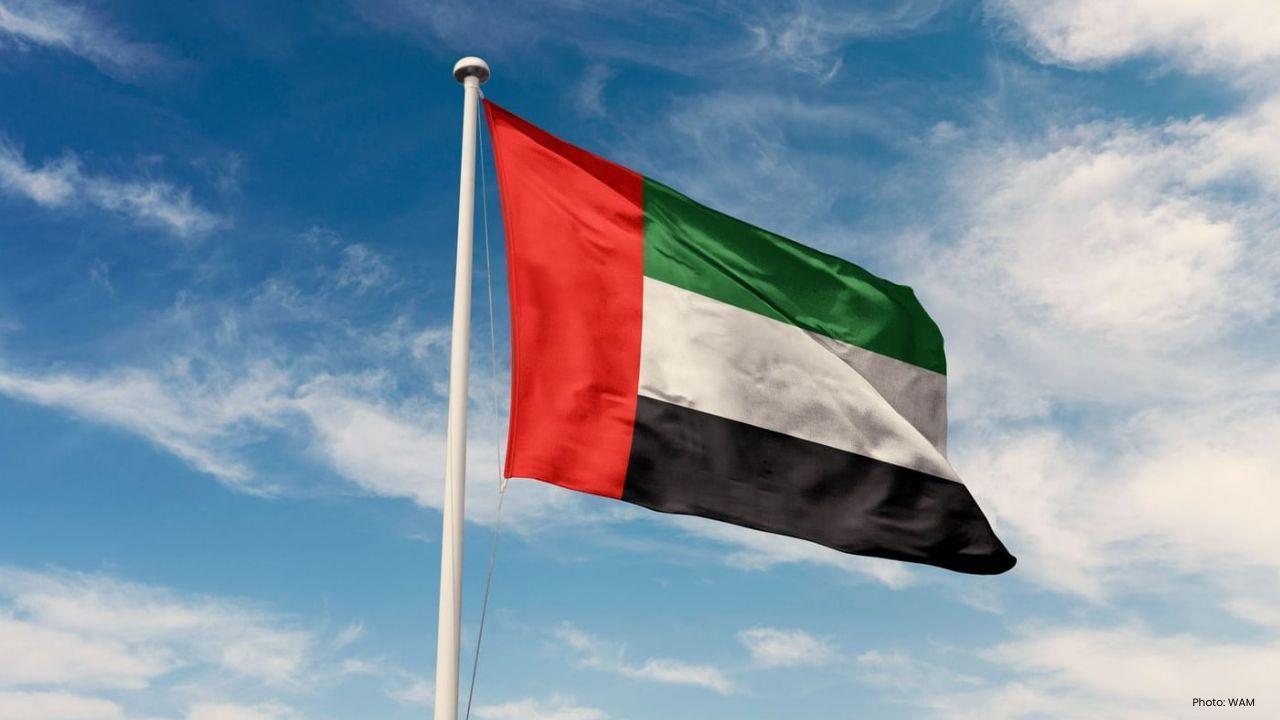
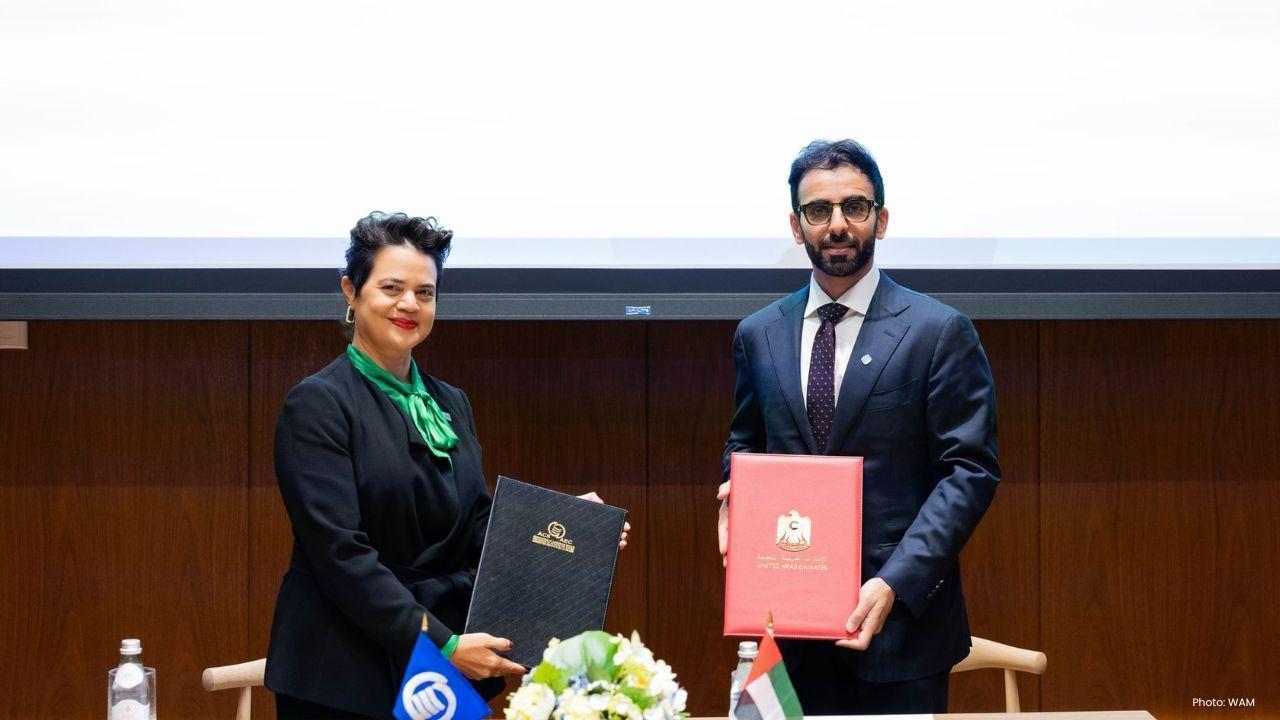
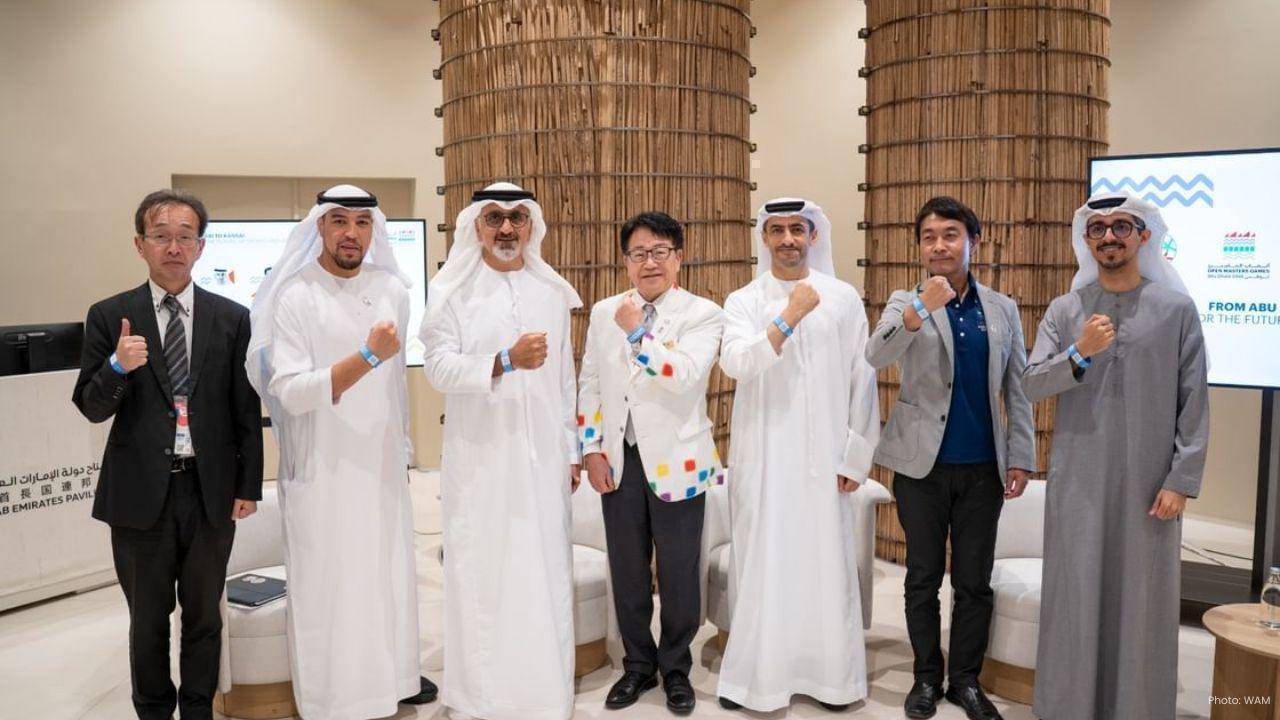

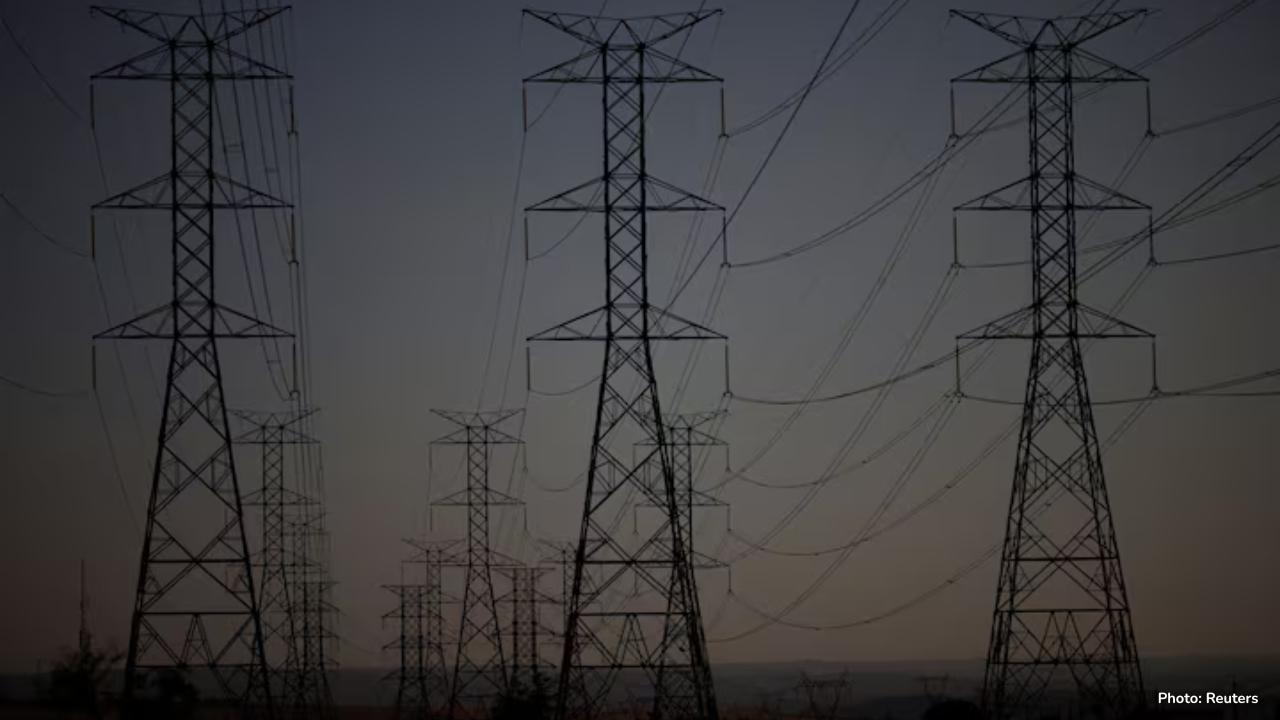

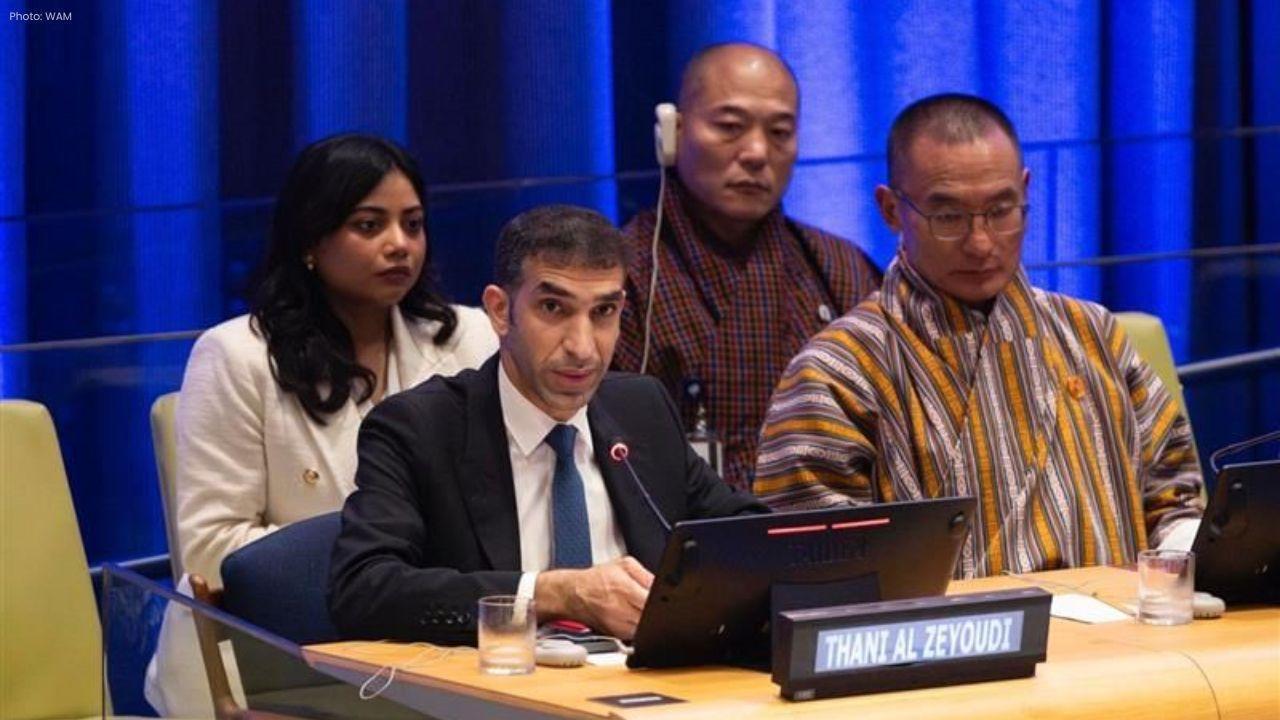

OpenAI's Revenue Soars to $4.3 Billion in First Half of 2025
OpenAI's revenue reaches $4.3 billion in the first half of 2025, marking a 16% increase from the pre

UAE Leaders Send Condolences to Saudi King Over Princess Abta's Death
UAE rulers and crown princes sent heartfelt messages to King Salman, mourning the passing of Princes

Brazil's Surplus Clean Energy Attracts Crypto Miners
Brazil's excess renewable energy is luring cryptocurrency miners. Companies like Tether and Renova E

Visa Tests Stablecoins to Make Global Payments Faster
Visa is testing stablecoins for international payments, aiming to speed up transactions and reduce t

Opera Unveils Neon AI Browser for Smarter Web Browsing
Opera introduces Neon, an AI-powered browser that automates tasks and enhances privacy, aiming to re

Albanese Visits Sheikh Zayed Grand Mosque in Abu Dhabi
Australian PM Albanese tours Sheikh Zayed Grand Mosque, highlighting peace, tolerance, and cultural